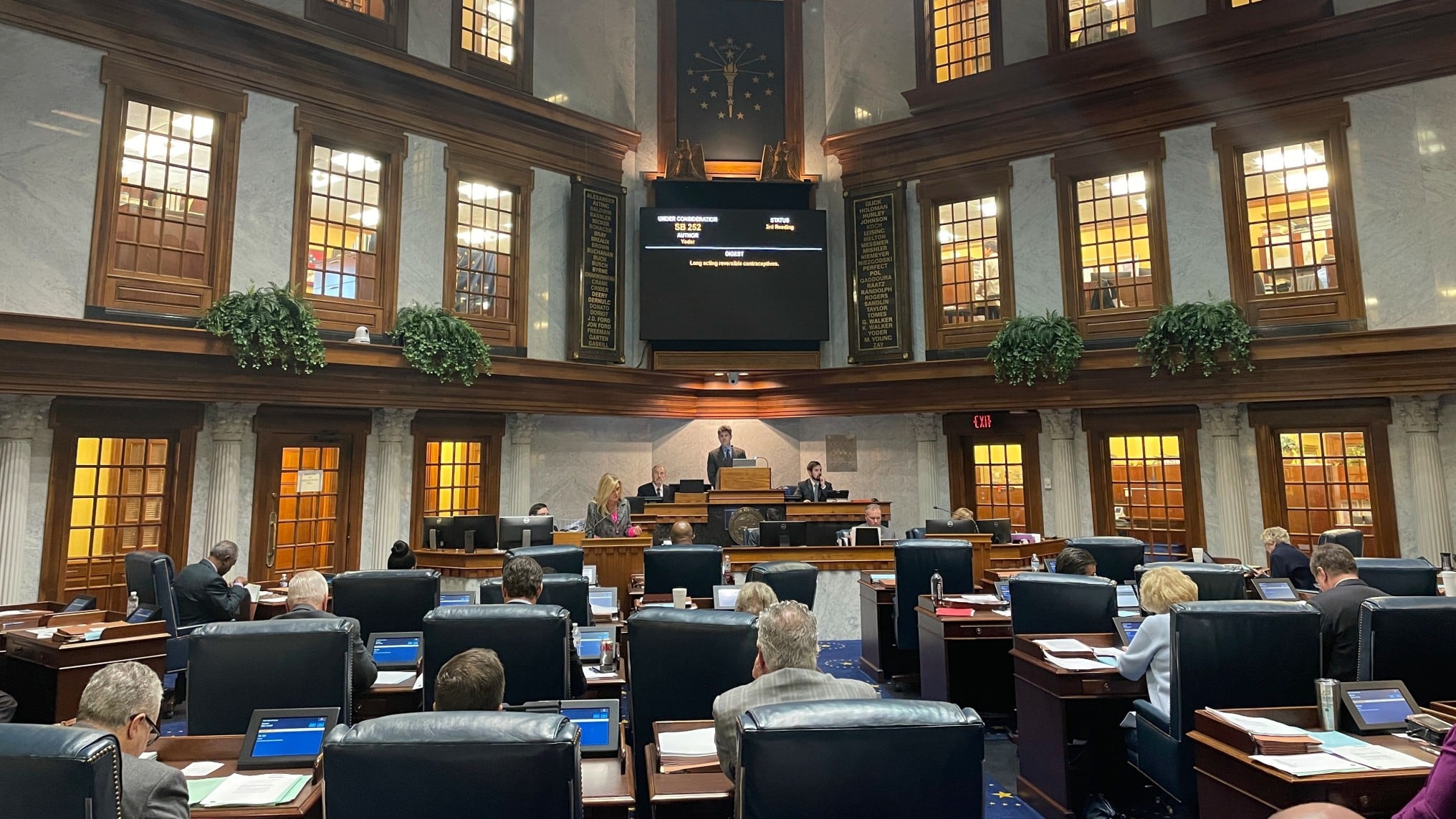By Isabella Volmert
Indiana's initial estimate for Medicaid expenses is nearly $1 billion short of its now-predicted need, state lawmakers learned in a report that ignited concern over the state's budget and access to the low-income healthcare program.
A December outlook found that Medicaid is predicted to need $984 million more than what was thought in April, when the state's biennium budget was finalized.
State budget director Zachary Jackson told The Associated Press the forecast used to develop the budget allowed Indiana to move $525 million from Medicaid to the state's general fund in July. The state has directed that $271 million of that money be moved back to Medicaid to address the shortfall of the last year, he said.
According to the predictions presented to lawmakers on Tuesday, the state will need to appropriate $255.2 million more for the program before July 2024 and $457.9 million more for the following year.
The flawed April forecast was based on data that did not reflect the latest needs of enrollees, state agencies said. Jackson said demand for certain categories, such as elderly care, outpaced what state officials anticipated. According to the report, home and community-based long-term services and support are anticipated to be in need of the most funding over the next two years.
Medicaid director Cora Steinmetz told lawmakers Tuesday that the agency is working on proposals for controlling costs, prompting concern over access to the program.
“We’re exploring all aspects of the Medicaid program to look at where there might be an opportunity to generate potential savings on the appropriation,” Steinmetz said.
Indiana's lawmakers finalize the state budget during odd-numbered years, leaving lawmakers and state agencies with a limited path to enact legislative change in the upcoming 2024 session. Steinmetz said the agency will draft proposals for cost containment within the power of the agency and the budget committee.
States across the country are unwinding pandemic-era protections that kept millions of people covered by Medicaid. In Indiana, the number of people enrolled in Medicaid steadily grew every month from March 2020 until May of this year, when the federal budget law ended the protections.
Indiana’s total enrollment has fallen every month since then. Even so, the demand is still greater than before the pandemic.
According to the report, Indiana saw a net growth of over 370,000 Medicaid enrollees since January 2020.
President Donald Trump says “there seems to be no reason” to meet with Chinese leader Xi Jinping as part of an upcoming trip to South Korea after China restricted exports of rare earths needed for American industry. The Republican president suggested Friday he was looking at a “massive increase” of import taxes on Chinese products in response to Xi’s moves. Trump says one of the policies the U.S. is calculating is "a massive increase of Tariffs on Chinese products coming into the United States." A monthslong calm on Wall Street was shattered, with U.S. stocks falling on the news. The Chinese Embassy in Washington hasn't responded to an Associated Press request for comment.
Most members of the Federal Reserve’s interest-rate setting committee supported further reductions to its key interest rate this year, minutes from last month’s meeting showed.
From Wall Street trading floors to the Federal Reserve to economists sipping coffee in their home offices, the first Friday morning of the month typically brings a quiet hush around 8:30 a.m. eastern, as everyone awaits the Labor Department’s monthly jobs report.
The Supreme Court is allowing Lisa Cook to remain as a Federal Reserve governor for now.
Rep. John Moolenaar has requested an urgent briefing from the White House after Trump supported a deal giving Americans a majority stake in TikTok.
A new report finds the Department of Government Efficiency’s remaking of the federal workforce has battered the Washington job market and put more households in the metropolitan area in financial distress.
A new poll finds U.S. adults are more likely than they were a year ago to think immigrants in the country legally benefit the economy. That comes as President Donald Trump's administration imposes new restrictions targeting legal pathways into the country. The Associated Press-NORC Center for Public Affairs Research survey finds Americans are more likely than they were in March 2024 to say it’s a “major benefit” that people who come to the U.S. legally contribute to the economy and help American companies get the expertise of skilled workers. At the same time, perceptions of illegal immigration haven’t shifted meaningfully. Americans still see fewer benefits from people who come to the U.S. illegally.
Shares of Tylenol maker Kenvue are bouncing back sharply before the opening bell a day after President Donald Trump promoted unproven and in some cases discredited ties between Tylenol, vaccines and autism. Trump told pregnant women not to use the painkiller around a dozen times during the White House news conference Monday. The drugmaker tumbled 7.5%. Shares have regained most of those losses early Tuesday in premarket trading.
Federal Reserve Chair Jerome Powell on Tuesday signaled a cautious approach to future interest rate cuts, in sharp contrast with other Fed officials who have called for a more urgent approach. In remarks in Providence, Rhode Island, Powell noted that there are risks to both of the Fed’s goals of seeking maximum employment and stable prices. His approach is in sharp contrast to some members of the Fed’s rate-setting committee who are pushing for faster cuts.
President Donald Trump’s efforts to reshape the American media landscape have led to the suspension of late-night comedian Jimmy Kimmel.












